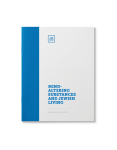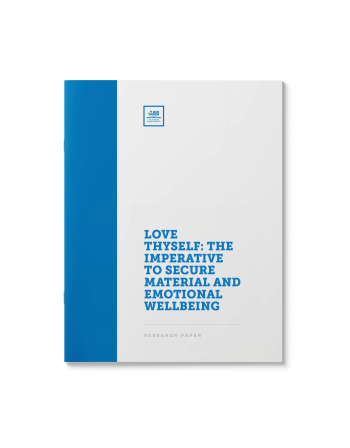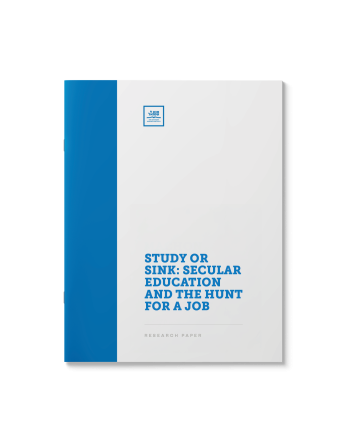Mind-Altering Substances and Jewish Living
$75.00
Many natural substances have psychoactive (mind-altering) properties that can significantly impact one’s mental state and affect one’s mood.
May an observant Jew avail himself of such stimulants? Is such recreation acceptable from a halachic standpoint, or does it contravene one’s Torah obligations? How would we judge actions taken while under the influence of drugs and alcohol?
See also: “The Drugs Debate” on the appropriate legislative attitude towards controlling the proliferation of potentially harmful substances.
Table of Contents
| Paper Type | Research Paper |
|---|
Related Products
What do Torah sources require in maintaining a high standard of cleanliness, particularly with regard to food preparation?
(Hebrew)
Does smoking violate our responsibility to protect our bodies? What about drinking alcohol? Do drugs fall into the same category? This paper examines the parameters of shmiras haguf and extracts the principles that inform halacha’s approach to the various ways of harming oneself.
Why is eating so important to Jewish people? Is there something holy about it? A comprehensive survey of the role that food and eating plays in Jewish life.
People drink to socialize, celebrate, and relax. Alcohol often has a strong effect on people – and throughout history, our people has seen both the ills and the virtues of wine and alcohol consumption. What do the traditional Torah sources say about this?
Eretz Yisroel is distinguished as “The Land G-d, your G-d, watches over; The eyes of G-d, your G-d, are always upon it, from the beginning of the year to the end of the year” (Devarim 11:12).
Settling the land of Israel is regarded by some authorities as a personal imperative, while others point to its intense holiness as a reason for caution.
An assortment of articles and letters.
What does the Torah stand on narcotics and other illegal substances? Would halacha demand that government intervene and regulate its citizens’ drug use? Or perhaps it is better to legalize such things, allowing addicts to escape a life of crime and perhaps start on the path to recovery?
An interesting look at man’s obligations to himself. What does Jewish law demand of him to do to better his lot in life? A survey of the financial, emotional and health precautions that one must take.
Judaism generally eschews secular education at the expense of Torah study. The reality, though, is often that one must gain some education or skill in order to make a livelihood. What does Jewish law say about this? What are the limits? How do we balance dogma with daily life?
Related: Studying the Secular: The Soul of the Matter
Joy is one of Judaism’s highest placed values. See why from a range of perspectives including halacha, mussar, and Chassidus. The Baal Shem Tov’s unique emphasis on simcha rounds out this broad discussion.
As a complex, strategic game known to improve memory and cognitive abilities, the Jewish attitude to Chess is an intriguing one. Were Torah scholars in favor of this pastime? Are there halachic issues to be aware when playing this game?
In recent decades, thousands of Jews have gravitated to the East in pursuit of spiritual enlightenment. More recently, several Eastern Practices have been secularized, popularized, and repackaged as physical and meditative exercises. Does this make them kosher? Which practices are problematic and should be avoided? And what was the Rebbe’s response to the popularization of Yoga and Transcendental Meditation back in the ’70s?
(67 pages)
Submitted by a Shliach in New York
How would you rate your concern for the environment?
Are there Torah perspectives about respect for nature, plant life, wastefullness and the like that you should be aware of?
The following collections feature sources exploring each of the following Mitzvos, as well as insights into how these laws inform our personal lives:
A. Ba’al Tashchis – (17 pages)Table of Contents Request this paper
B. Shmittah – (50 pages)Table of Contents Request this paper
C. Cutting Fruit Trees – (44 pages)Table of Contents Request this paper
D. Orlah – (16 pages)Table of Contents Request this paper
E. Tza’ar Balei Chaim – (47 pages)Table of Contents Request this paper
F. Kilayim – (25 pages)Table of Contents Request this paper















